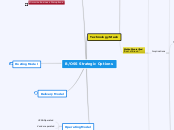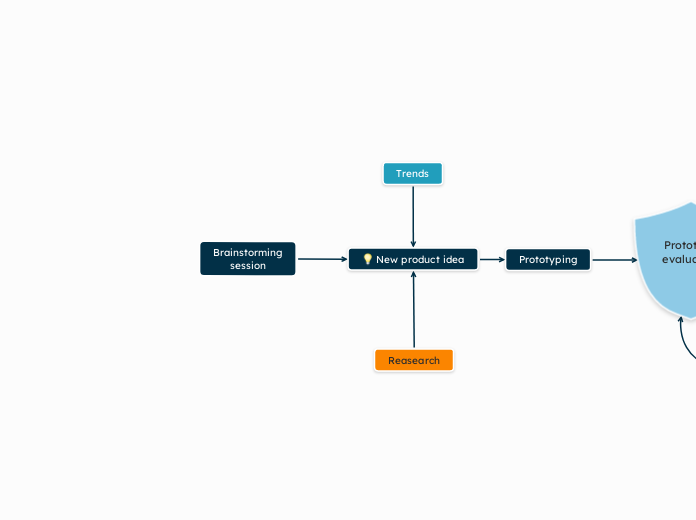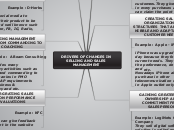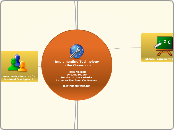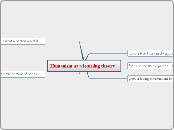B/OSS Strategic Options
Operating Model
Combination
Vendor-operated
UCSS-Operated
Delivery Model
Fully Outsource to 3PV
Manage Internally with Staff Aug
Fully Outsource to B/OSS Vendor
Hosting Model
Public Cloud
In vendor's data center
On-premises
Goals
Minimize Business Disruptions
As part of normal operations
To implement new capabilities
Ease of integration to other products
Adaptability and Extensibility of the product
To maintain technology lifecycle
Intrusiveness of product upgrades
Cost of product upgrades
Frequency of product upgrades
Faster Speed-to-Market
Enable agility
etc
Next-gen digital business architectures
Lower Cost
Lifecycle costs
Cost to deliver new capabilities
Operational Cost structure
Strategic Leverage
Increase level of transparency and trustworthiness in B/OSS vendor relationship(s)
Increase number of potential vendors for system operation
Increase number of viable alternative solution paths & vendors
Greater ability to challenge costs (see "Lower Cost")
Increase amount of influence on product roadmap
Enable New Business Capabilities
Adaptability of "out-of-the-box" features
Configurability
Openness of APIs
Products and Services
The next business model change like EIP
The next Shared data / Unlimited data / Rollover data
Lead & Prospect Management
LOB-Specific features
B2B & SMB
Prepaid
NW services, VoLTE, 5G and IoT
Personalized Recommendations (consistent across channels)
POS on Tablet
Integrated eCommerce
Technology Stack
Matrix Diversified
"Best of Breed"
Cost and complexity surpasses the potential strategic benefts
Custom new product/s to comply with current business processes
Change process to comply with new products
Can't think of even a single carrier that transformed from best of suite to best of breed
Most Amdocs customers - other than those that implemented a full stack
Bell Canada
Tellus
Sprint
Incremental cost, time and complexity in building new business capabilities
Complicates testing
Complicates technical requirements
Accountability challenges
Manage multiple vendors
Reduced operational stability
Significant Development cost
Reoccur costs with any Upgrade
To achieve parity with productize stack
To implement interoperability changes in the Amdocs components that will be part of the new architecture
Other BSS components for which matrix diversity can be considered, but doing so can't be considered as "best of breed" architecture
Roaming Partner Manager
Service integration layer
Data Analytics
User Interfaces (self-care, Retail, call center, IVR)
Mediation (already non Amdocs)
Bill Document Design
Provisioning
Component choices
Enterprise Product Catalog
Ordering
Rating
Billing
CRM
Modify our BSS stackvconsisting of best-in-breed components for (some or all of) the following:
CRM, Billing, Rating, Ordering, Product Catalog
Vertically Diversified
"Parallel Stack"
Depending on business case: how much are we willing to invest (CAPEX and OPEX) for gaining these strategic benefits
Complicates leverage for billing projects 2+ moves ahead
Produces leverage for next-move billing projects
Incremental headcount to manage an additional stack
Depending how many new stacks
Depending on the operations model of the new stack
Depending on the hosting model of the new stack
Many business processes will be impacted
Custom the new stack/s to comply with current business processes
Change process to comply with the new stack/s
Some business process may need to be adjusted to become in compliance with the new stack/s (in order to reduce customization of the new stack/s)
Examples
Other case studies
TMO
AT&T
High Complexity
Likely 50+ Integration Points with existing 3rd party systems
Commissions
Cash Registery
Network Elements and/or Provisioning GW
SAP
Examples:
Duplicate vs. Shared components
Order Management - Duplicate
Product Catalog - Duplicate
Bill Design - Can be shared
Collections - Duplicate
POS Cash Registry - Must be Shared
Accounting and journaling - Must be Shared
Account Receivables - Duplicate
Rating - Duplicate
Billing Calculation - Duplicate
Provisioning - can be shared
Scope TBD: Provisioning, Customer-Facing UI, Service Integration, etc.
Out of Scope: Inventory, G/L, Commissions, Mediation, etc.
New BSS stack to include: CRM, Order Mgmt, Rating, Billing, Product Catalog, Payments, A/R, Collections, Applicable UIs
Introduce new suite(s) of BSS components to serve other LOB(s)
Leave Amdocs stack in place for core consumer postpaid LOB
Horizontally Diversified
"Layered Architecture"
Develop a technology strategy for each business capability (tablet in retail store, Digital, Call Center UI) on a case-by-case basis, but while considering technology re-usability and channel consistency.
Don't proactively replace existing CES UIs
Depending on the technology approach for relevent business capabilities, some process changes may be needed
TOPS Backend
Require Amdocs to expose more / all APIs
Decouple from TOPS by leveraging a Digital technology and implement a unifed UI
Combinations of the above
Retail POS platform
Hybrid: Custom Lighweight UI with minimal embedded headless commerce product capabilities
Headless commerce product (e.g., Elastic path) and custom UI
Custom LightWeight UI based on NodeJS and Angular
eCommerce platform
Build non-Amdocs user interaction channels (UIs, etc.) on top of integration layer
Build non-Amdocs integration layer on top of CES backend components
Keep Amdocs components for core BSS functions (in the "backend" layer)
Fully Unified
"Best of Suite"
Transformation Option
At this phase, do not invest further in anlyzing this option
Significant business impact
Huge cost
Has the potential to address many of the strategic goals
Technology
Complete new stack
Re-evaluate and possible re-design many business process to align with the new stack
Huge and lengthily effort to evaluate, and then learn, the new stack
Implement full suite of non-Amdocs B/OSS vendor
Incumbent Option
Recommendations
For every technology capability, evaluate Amdocs solutions vs. alternatives and make selection on a case-by-case basis
Raises the level of our partnership with Amdocs
Enable implementing some new business capabilities (POS on Tablet, Digital Services platform)
Limited ability to address many of our strategic goals
Depending on the technology approach, some process changes of business teams handling specific channels may be needed
Example: ecommerce team will rely on EPC for products, pricing and promotions
Additional Amdocs components to operate
Can include any of the following components:
Other Amdocs OSS components
Amdocs NFV solution
BriteBill
Amdocs Big Data Analytics
Call Center UI
Evolve to CIM to hybrid architecture that is partially based on UXF Widgets
Keep CIM as-is and continue to expand/customize as needed
Tablet solution in Retail Stores
Implement ARIM (based on UXF)
Digital channel
Dependency on TOPS Upgrade is yet TBD (probably feasible with Backporting to 8.1)
Integrated eCommerce - by design
eCommerce solution based on Amdocs Digital Service Layer product (UXF)
Headless - with our own-developed UI
With Amdocs UI
Description
Stay on Amdocs Product Path
Amdocs Retail Solution (POS on Tablet)
Amdocs UI products (fully or partially widgetized)
Amdocs Integration Layer (REST, Headless Widgets)
Keep Amdocs solution as-is
Implications
Strategy
Process
People
No impact
Technical
Do not deliver new BSS capabilities that requires stretching the existing stack
Design solutions to new business capabilities within the bounds of the existing BSS stack
